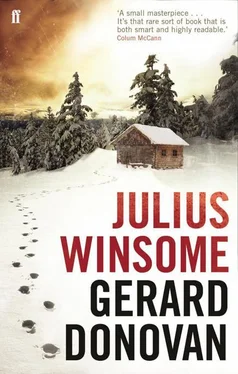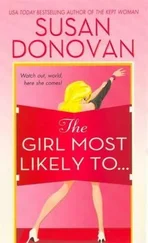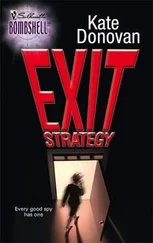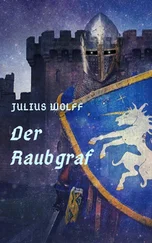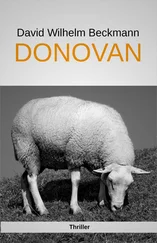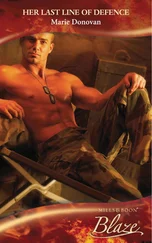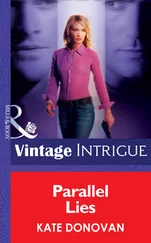But lighting a fire with them was also useless. The cold flakes would wrap themselves around any small flame and snuff it out, and I wondered if I was the complete fool now if I thought I could burn the hours of my childhood and most of my life on a whim or because men had taken to shooting on a morning in early winter.
There would be no transportation of books. I should be dealing with those guns instead.
I WALKED INSIDE AGAIN, BRINGING OUT A THIRD GLASS of sherry and sitting by the flowerbed where a few feet down my companion lay wrapped and packed in clay.
He had gone to ground, and ground was in his name: terrier, from the Latin, always digging after quarry. No matter, I could have set a baby down in the clearing in the forest and the pit-bull terrier that was Hobbes would defend that baby from bears, from mountain lions, from anything abroad in that forest, human or otherwise, because it was his job to defend it, even with his own life. And you don’t have to starve them and chain them up to make them tough, it’s built in, they come out tough. I had treated him like a baby, that’s true, and plenty of people will object to that, treating an animal like a human when there’s so many hungry people around, why not feed the people first who need feeding. I was sure they fed those hungry people themselves when they got the chance: I didn’t know these things. Good luck to them. They could live in their world as long as they stayed out of mine. The trouble with people like that is they can’t stay in their own world. And two of them had now evidently strayed where they didn’t belong. I rose and walked to the edge of the woods and said to the woods in general,
There’s fresh snow fallen, can’t you hold off?
I ignored them as best I could for another couple of hours. I read the lists of Shakespeare, from F, Firstling and Flanker , to G, Garboil , Geck , Gallowglass , Gallimaufry, and Gulf . I liked the Gs then. But still the shots continued, the two of them and the ammunition that could have sustained a company of soldiers.
My thoughts, it is true, had turned black, the color of Hobbes’ world, turned it fast. I could not enjoy the writing and put the list away, walked to the barn and placed the sherry on the bench and lifted the Enfield out of its case, set it across my shoulder with a fresh clip in the magazine. I saw another clip handy on the bench and wanted to carry it too, but it would drag in my pocket, so I left it behind me. I also left the telescopic sight behind.
I took the white blanket off Hobbes’ grave and draped it on my other shoulder over the long coat and set off into the woods toward the sound of the shots. It was easy to follow them, they came regular, a couple a minute. Those men must have brought a garrison’s worth of cartridges with them. What were they hunting, the entire northern herds? Were they not aware that it was one deer per person per season? These I could tell were heavy-caliber rifles, auto-repeaters, also illegal for hunting as far as I knew. Well-armed men, shooting well and careless as to the law. Could easily have been one of those two then who had done the shooting. It was even likely, if that man weren’t dead already.
TWENTY MINUTES INTO THE WOODS AND IN THE GENTLY falling flakes I came silently upon a man. He was wearing orange and made no attempt to disguise himself.
I had not heard anything for five minutes and then there was this crack of fire in the middle distance: he stood in his orange huntsman’s vest, shooting rapidly at two deer feeding in the adjacent field. Another minute and I would have stumbled on top of him had he been quiet enough, or stumbled down dead if he had been waiting for me.
I unslung the rifle and watched him. One of the deer crumpled at the rear, he had caught it in the hind leg. The deer looked ahead to where the other ran, trying to follow, to gain a foothold on the flat grass. The hunter shot again, this time splashing a bullet into the neck and flattening the deer motionless on its right side.
I waited for another minute. The huntsman did not move from his firing position, did not walk to check on the shot, which I thought strange. Perhaps he was waiting for the mate to return to shoot it too, but he knew surely that the deer would not return, not that soon. Now where was the other shooter? Had I mistaken the sound of one rifle for two? Was he alone?
I heard myself whisper, perhaps too loudly: By your shots I deciphered two of you, and each with his rifle exhaled, expedient back and forth in the woodland.
Yes, I did count two rifles. The other must have been off hiding or tracking another animal. I waited for another couple of minutes and then eased up the safety and gently pulled the bolt, and then I looked up to aim as I raised the rifle, and I saw the man’s gun pointed at me, and he looked panicked. I stepped to the left as his finger pulled the trigger, that same instant, and the bullet smacked the bark of the tree at my right ear, scoured a foot of bark that shredded itself onto my shoulder and into my eye. He should not miss the second time, not at this range, even in a panic. I moved back to the right and brought the rifle up. I breathed in and he shot again, and some god-awful fire ran the skin of my left shoulder; I aimed with my good eye and breathed out and pulled the trigger, and his head cracked around the hole and he fell like carrots from a torn bag, dead a long time before he hit the ground.
I pulled back the bolt handle and checked the wound: superficial, nothing that would bleed much. My father had taught me well. Never hurry a shot. This man could have had me if he had waited a tenth of a second. He may have been expecting me: his shooting might have been bait to draw me out. But that was brave of him to stand out like that and shoot in an orange top. And why kill the deer? But why kill a dog? And foolish of him in the end, surely, though you don’t want to be mocking the dead.
It was a good thing I didn’t budge, because a truck ripped through the saplings and tore the foliage as it made for me, a big half-ton with blue paneling and tinted glass. A pump gun hung out the driver’s side window and sprayed shot pellets with the first report, and the second sound I focused on was the driver sliding the pump action. Must have been turning the steering wheel with his knees, most likely. I ducked as the shot sliced the undergrowth around my feet and a hot knife stabbed my knee.
I slowed the truck down in my mind: he was six, seven seconds from me, and if I ran he would drive over me within a few steps, there were so few large trees in this spot. I remembered the position of the grille and tracked the trajectory by its chrome, brought the rifle up and aimed three feet and seventy degrees from the front corner and fired. The cartridge splintered the windshield a hand wide and entered his right eyebrow. His head flicked to his left and he stared out the window as the truck locked in a circle and slammed against a tree, trying to mount it as the tires spun.
I did not move, a frozen man in his white blanket. I would not make that mistake twice. The engine of the truck ran high: the driver’s foot must have jammed against the pedal. The woods were so quiet, the truck so loud. As if another person beside me performed the action, the bolt slid and another round went into the firing chamber.
I had three bullets to my name.
I stayed low and watched, breathing the relief. I was lucky with the speed of reloading: the bolt handle on a Lee Enfield is set back behind the trigger, which makes chambering smooth and fast, twelve shots a minute. My grandfather said that when the Germans first faced the British infantry lines equipped with Enfields, they thought they were under machine gun fire. The bolt action, the engineering of the thing, had saved me.
Читать дальше
